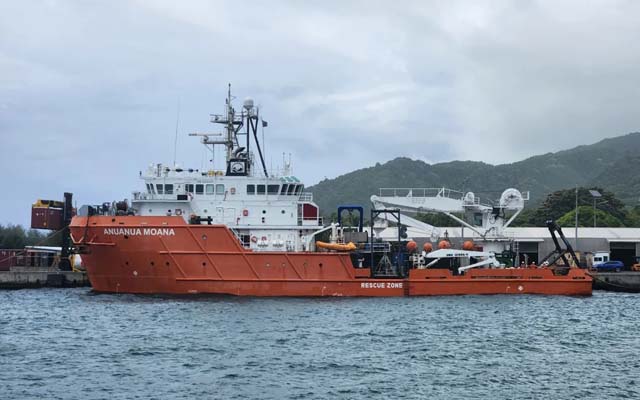News Flash
News Flash

SYDNEY, Feb 14, 2025 (BSS/AFP) - Cook Islands officials said Friday they had discussed seabed minerals research with China as the small Pacific island mulls deep-sea mining of its waters.
The self-governing country of 17,000 people -- a former colony of close partner New Zealand -- has licensed three companies to explore the seabed for nodules rich in metals such as nickel and cobalt, which are used in electric car batteries.
Despite issuing the five-year exploration licenses in 2022, the Cook Islands government says it will not decide whether to harvest the potato-sized nodules until it has assessed environmental and other impacts.
Prime Minister Mark Brown has nevertheless touted the benefits of the potentially multi-billion-dollar industry, saying last year that the Cook Islands needs to protect itself against climate change "through whatever revenues that we can get"
.
Officials from the country's Seabed Minerals Authority said they had engaged in high-level talks with Chinese research institutes when they joined Brown on a five-day state visit to China this week.
Talks with Chinese researchers highlighted "collaborative opportunities" in areas including seabed minerals, the Cook Islands' body said in a statement.
The delegation also spoke about potentially working together on marine and deep-sea exploration technology, it said.
"These conversations have opened the door to new areas of collaboration," said Brown, who is also the minister of seabed minerals.
Brown's China visit -- during which he was expected to sign a "joint action plan" for a comprehensive strategic partnership with Beijing -- has raised hackles in New Zealand.
New Zealand Foreign Minister Winston Peters' spokesperson complained this week of a lack of consultation over the trip, describing it as "a matter of significant concern".
Under the two countries' free association, Cook Islanders are citizens of New Zealand, which provides budgetary assistance and help in foreign affairs and defence.
China is vying for diplomatic, economic and military influence in the strategically important Pacific, challenging the historic regional sway of the United States, New Zealand and Australia.
But New Zealand itself is rethinking its position on deep-sea mining.
Resources Minister Shane Jones told AFP this week his government was considering withdrawing the country's support for an international ban on the practice.
"We can't deny ourselves the option where critical minerals have an increasingly critical role to play," he said.
Conservation groups and scientists fear deep sea mining could devastate poorly understood marine systems that play a crucial role in regulating the climate.